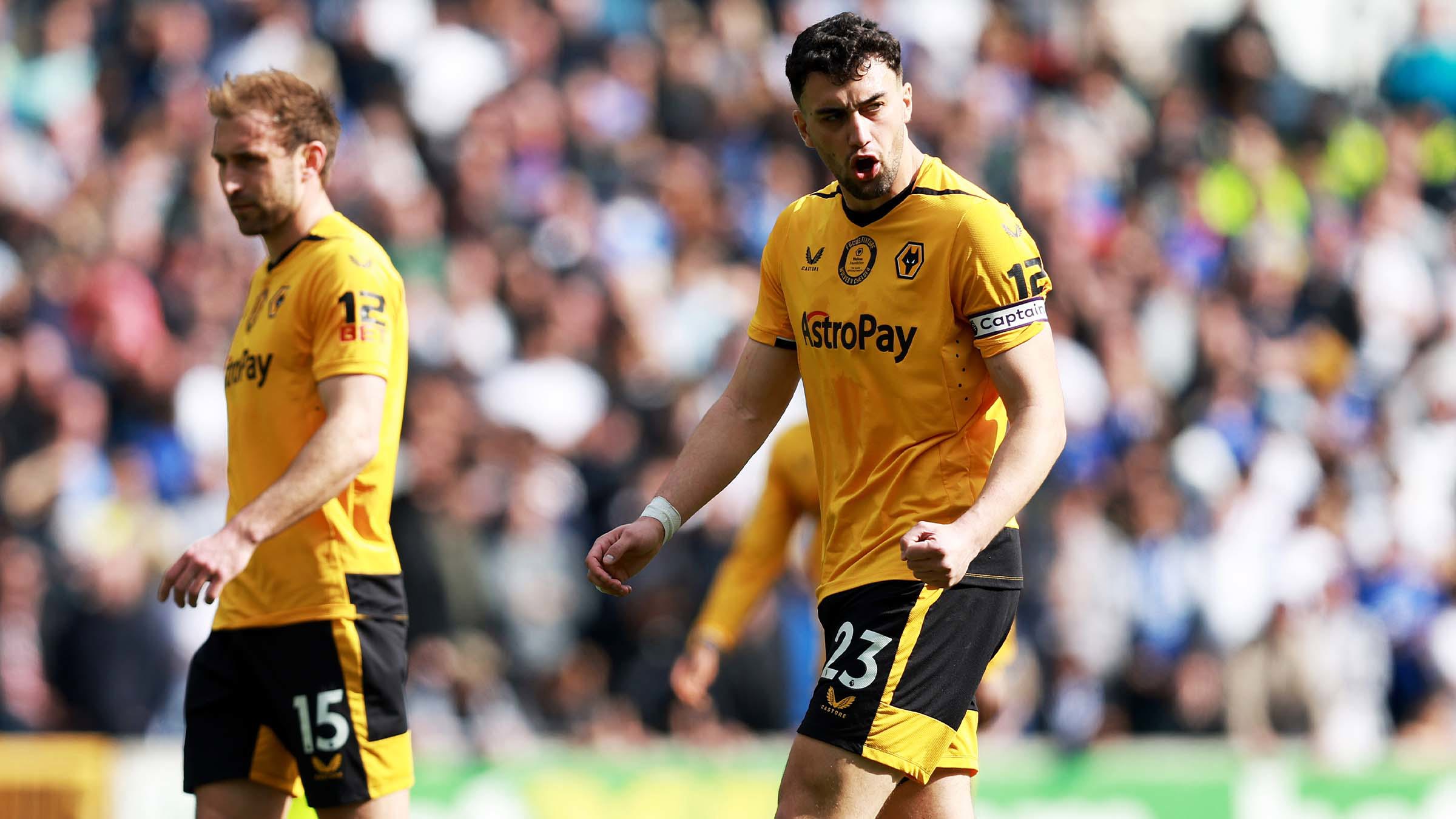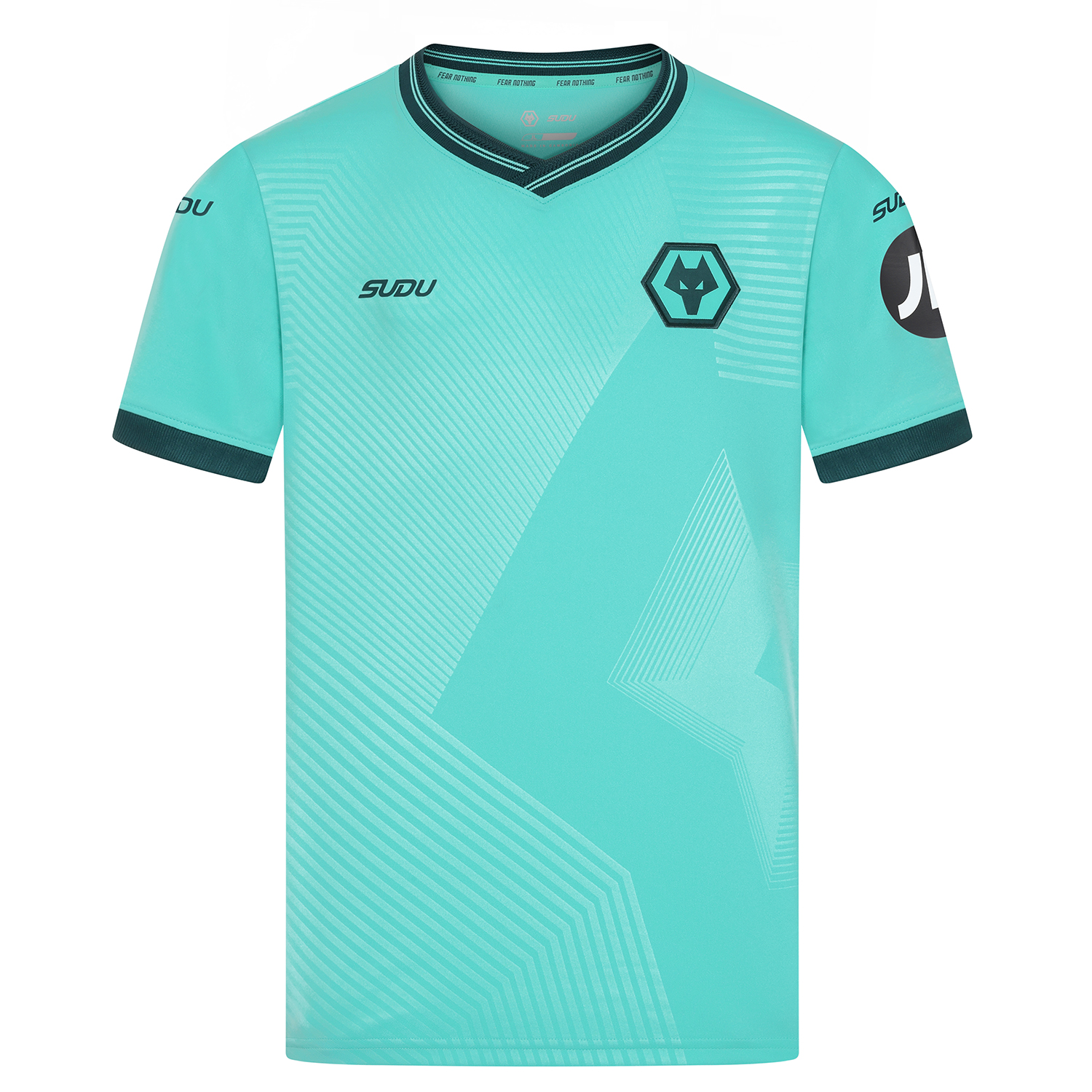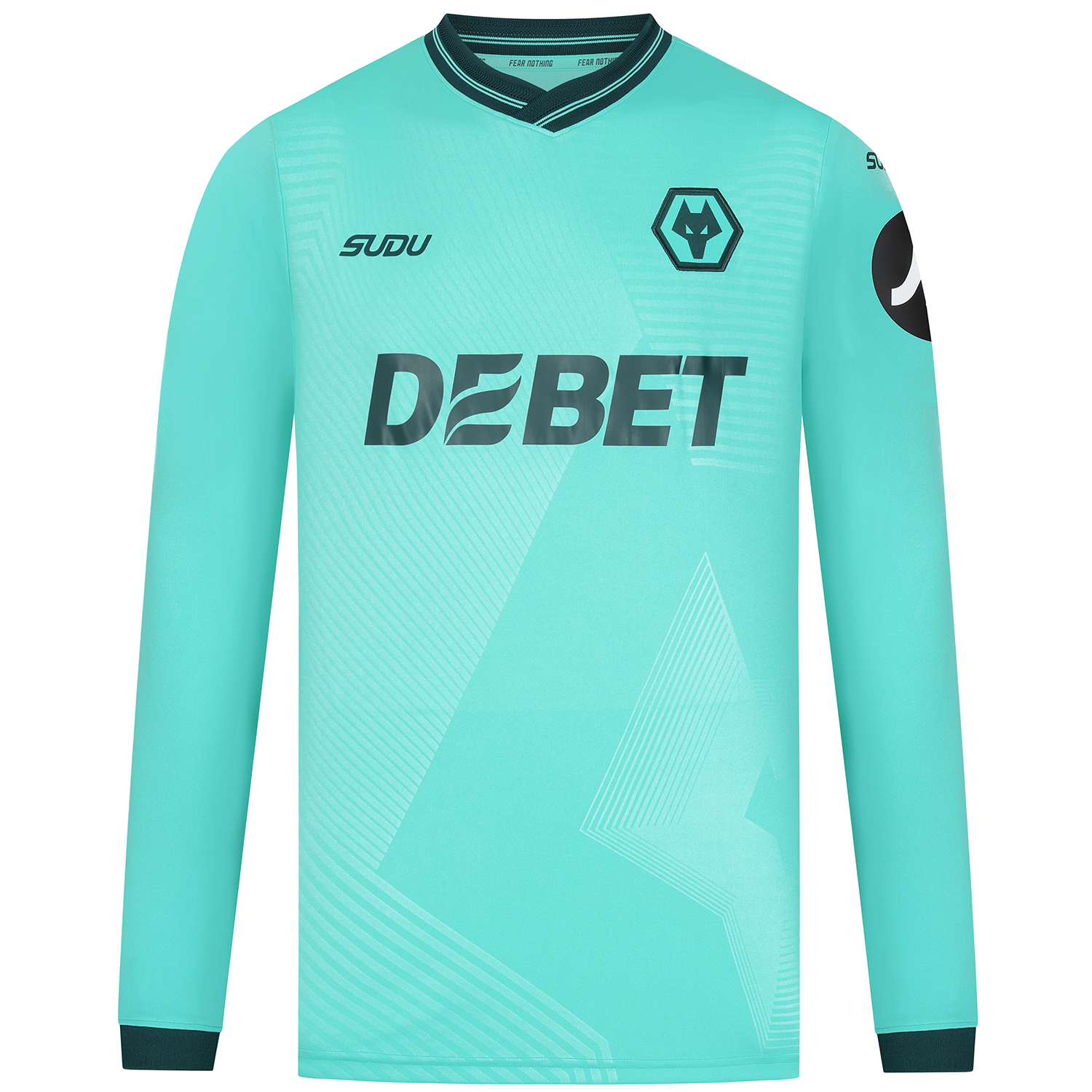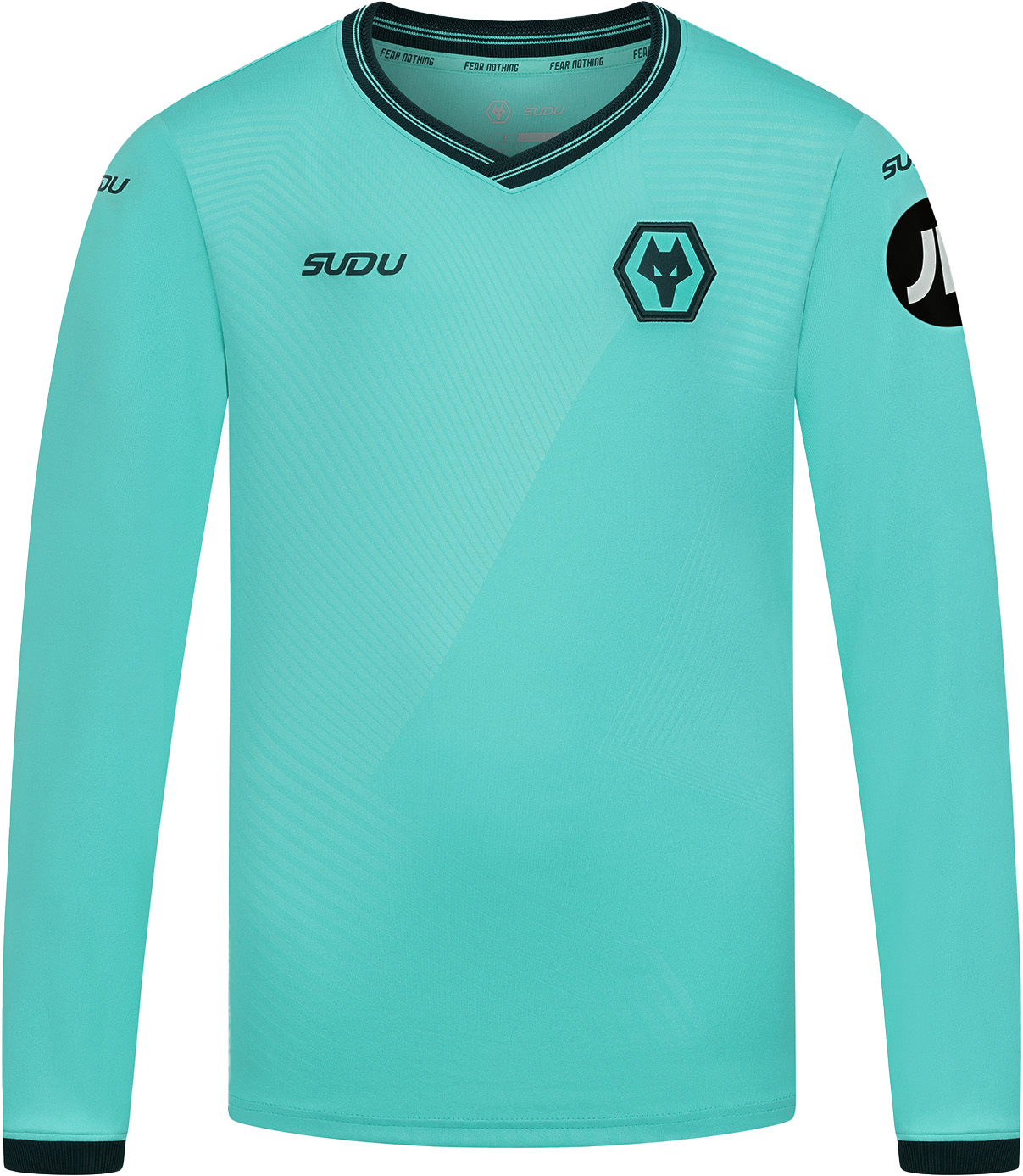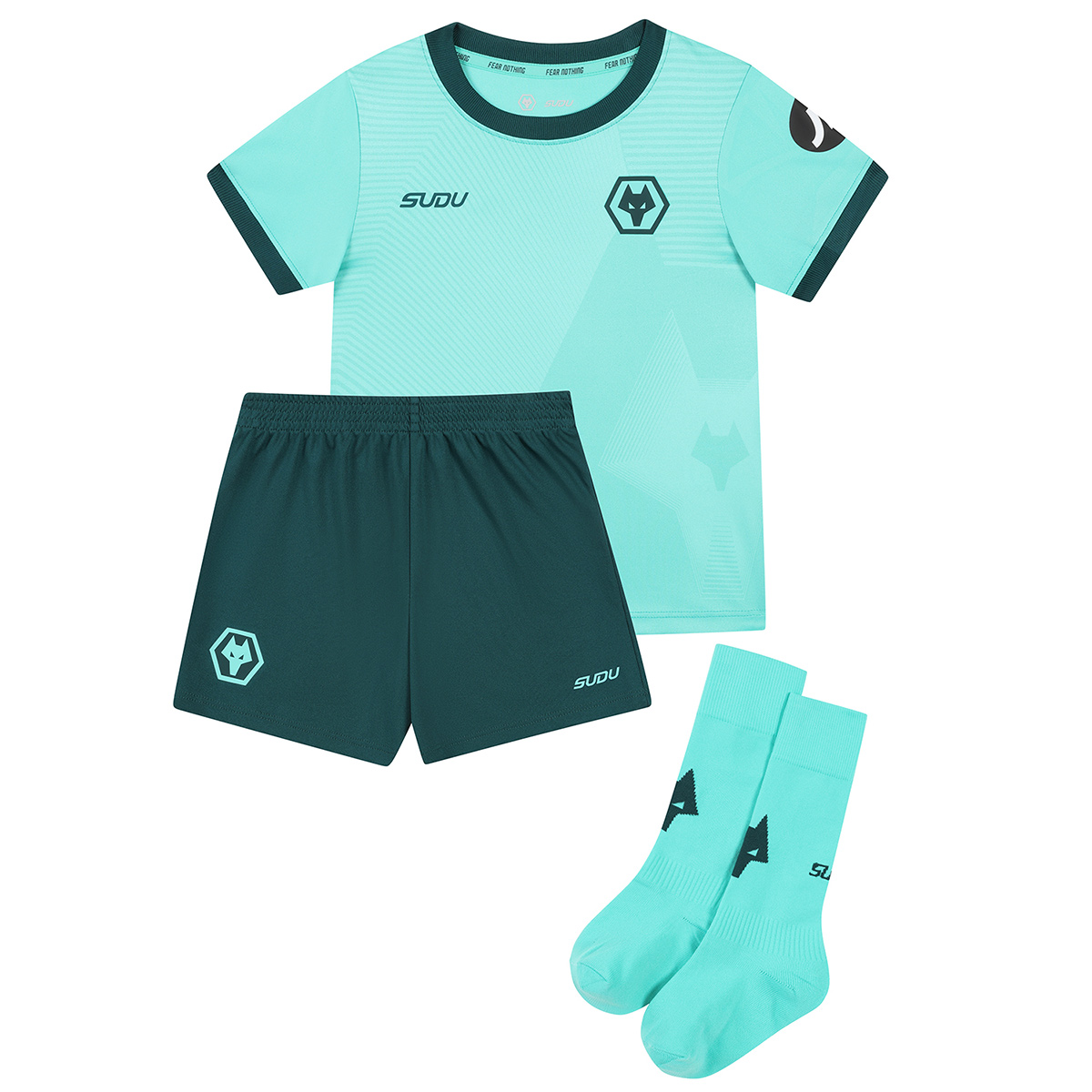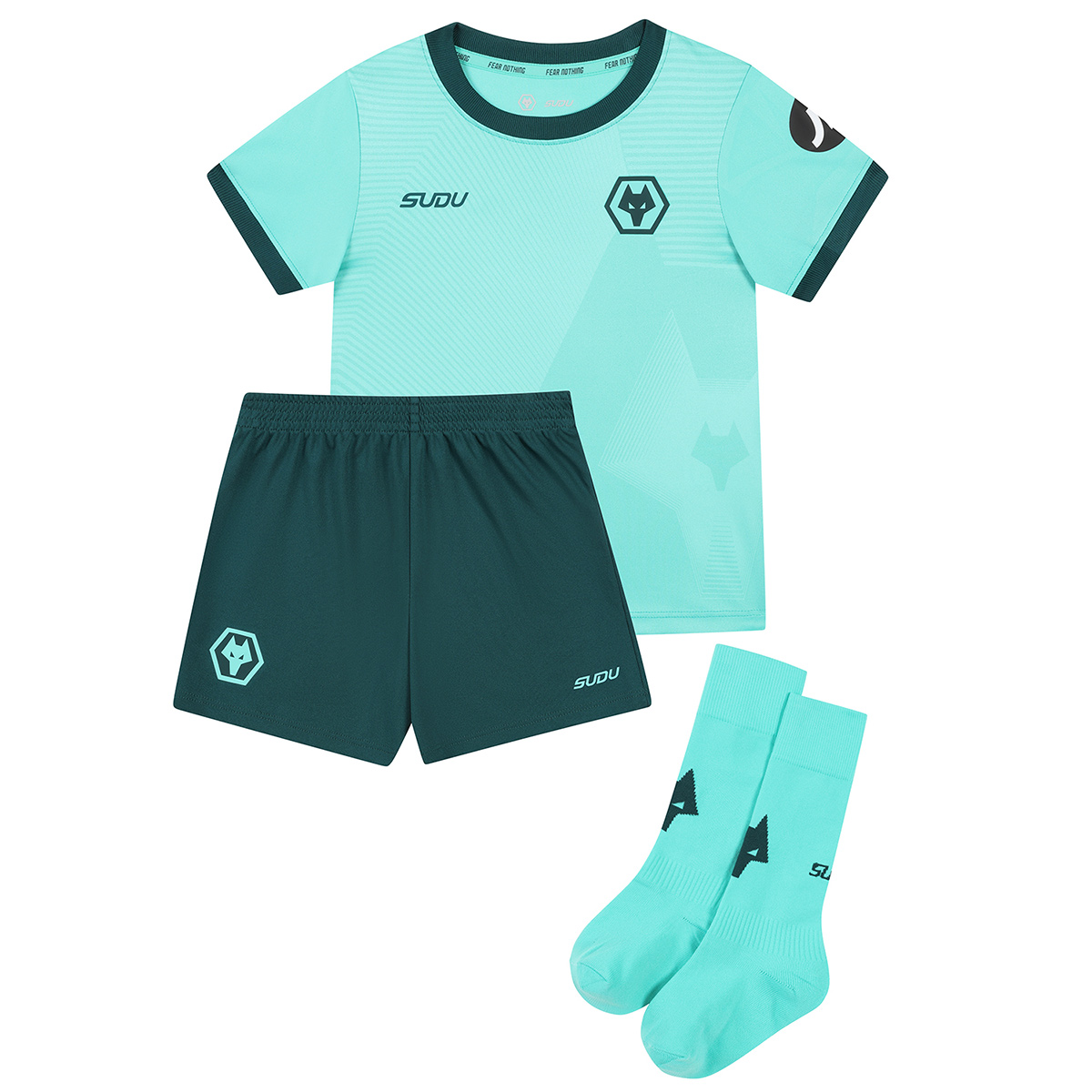Captaincy comes in different guises. Conor Coady and Ruben Neves differed in many ways but were held in similarly high regard in the dressing room. For Maximilian Kilman, wearing the armband wasn’t always the plan, but an inspiring story, aided by inherent leadership skills, have made it a reality.
When Wolves kick off the new season against Manchester United at Old Trafford on Monday, they’ll be led out by Kilman, as the club’s new permanent captain. The departure of Ruben Neves left the armband unaccounted for over the summer, but as vice-captain, and an ever-growing influence in the dressing room, Kilman became the natural successor.
His appointment is the latest milestone on a meteoric rise from a promising Maidenhead United youngster to being named the captain of Wolves. Now a staple in the heart of the Old Gold defence – the 26-year-old missed just one Premier League game last season – and Kilman is humble enough to reflect on the challenges throughout his journey, which he has overcome with determination and leadership.
Kilman said: “When I first joined Wolves it was the 23s, and because I was a bit older, I was one of the leaders in the group – five of us were captains over the season and rotated, so that was my initial experience of leadership. When I came into the first-team, it was different. I was quite quiet because we had a lot of older and experienced players, like John [Ruddy], Coady, Saiss, Boly, Ruben [Neves], Moutinho, to look up to at the time and I tried to learn from them.
“When I started to break through more, I was still quiet. I was obviously making jokes with the boys, but I didn’t feel I could step into that leadership role. But last year, I got a really good taste of what being a leader requires.
“I was vice-captain, and was captain for a few games, so that really helped me transition into the role now of being captain. I was very lucky to have that period, where I got a sniff of being captain and more of a leader. If I was thrown straight into the captaincy this season, it would have been a lot more difficult, but I’m much more comfortable and this pre-season has really helped me gain that confidence and drive to be the captain.
“When Ruben left, I didn’t feel I had to stamp my authority and say I wanted it. I was chosen and, of course, I’m very privileged. Off the pitch it brings more responsibility, but on the pitch, I’ll always do my best and show my leadership skills in my own way.”
A career in the professional game wasn’t always on the cards for Kilman. Multiple rejections led the defender to part-time Maidenhead, where he balanced his football with studies towards a business management and sports degree at the University of Hertfordshire. The foundations were being laid for a career in the outside world, which displays a forward-thinking, determined personality, but instead, that skillset has been put to good use in football.
“I’ve always had a determined and tough mentality and it’s always been within me. I’ve had to fight for every opportunity because nothing has ever just been given to me. I’ve always had to work my hardest and sometimes against the odds because coming from non-league here to Wolves, there wasn’t that much expectation on me.
“I came into the under-23s and no-one really expected me to break into the first-team because I was quite an older player in that squad – I was two and a half years older than most of the boys. But I just knew that I needed to work, because anything could have happened, so I just had to believe that if I try my best, at least I’ve given it my all and there would not be any regrets if I did progress at Wolves or if I didn’t.
“That’s the mentality I had. Just to fight, and every time I got called up to train with the first-team, I would approach it like a game. I wasn’t relaxed, I was hungry, and I wanted to show my ability. Obviously, I was learning from the manager at the time and the amazing players we had at that point when I was breaking through and they were so crucial for my development. I really took everything in, I tried to embrace the challenge and I just wanted to learn.”
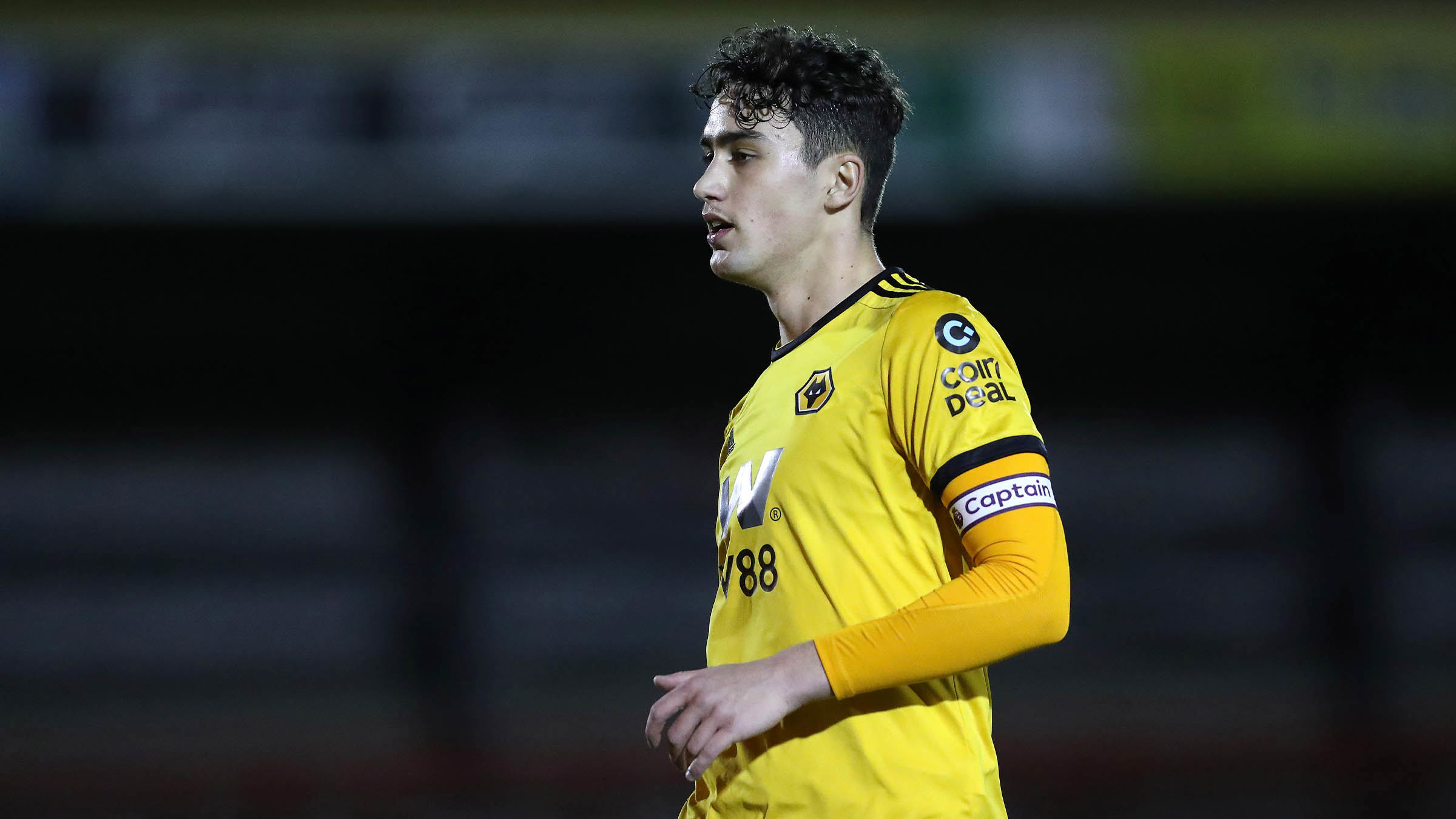
Working with experienced players and coaches developed Kilman the footballer, however it’s his Ukrainian parents, mother from Kyiv and father from Odessa, who were the support bubble off the pitch. It’s the people he dedicates his career to, particularly now his father has sadly passed, and their influence reflects in the personality which now leads the Wolves dressing room on a day-to-day basis.
“Without them, I would be nowhere near where I am today. For sure, they were my two role models. They were always encouraging me, always helping me. There were plenty of trips they were making and sacrifices to take me to different trials, driving up and down the country just to go to a training session for an hour and a half.
“There were times when I didn’t train that well and I felt so much frustration, but they were so patient with me, and even when I faced a lot of setbacks, they always encouraged me to keep going, they believed in me, and that’s where I’ve got that mentality from. They both wanted me to keep going and made me believe in myself."
It’s due to his family’s origins that Kilman can speak Russian. Although not helpful on a daily basis at Compton Park, his multi-lingual skills show a determination to better himself. That too was on show with the jump to Wolves.
In 2018, Kilman became the first footballer to directly move from non-league football to the Premier League in ten years, following in the footsteps of Chris Smalling. It’s a transfer, as a left-back, which was announced alongside two other new additions for the under-23s with a brief website article five years ago this week, but it was then when the hard work began.
“I think my route’s been different to most footballers. Of course, every footballer has experienced lots of setbacks, but I got released quite young from Fulham and from the age of 14 until about 18 I was going to trials, in and out. I was at Gillingham for a bit, but they didn’t offer me a professional contract, so it’s always been a very bumpy ride for me.
“When I got to Maidenhead and was playing non-league football, I got to the position where I felt I could be a professional footballer again. However, I never thought that I’d have got this far in such a short space of time. I’ve just tried to take everything in my stride and have loved every minute of it. Wolves have given me so much happiness, for me, my family and everyone around me, and I’m grateful to be in the position that I’m in now.”
At the point of his move to Wolves, Kilman was living in university accommodation in Hertfordshire, allowing him to finish his studies online and commute to Wolverhampton. During that 2018/19 season, Kilman helped Rob Edwards’ under-21s group to Premier League 2 promotion and on the penultimate day of an historic first season back in the top flight, made his senior debut against Fulham, the club who’d released him all those years before.
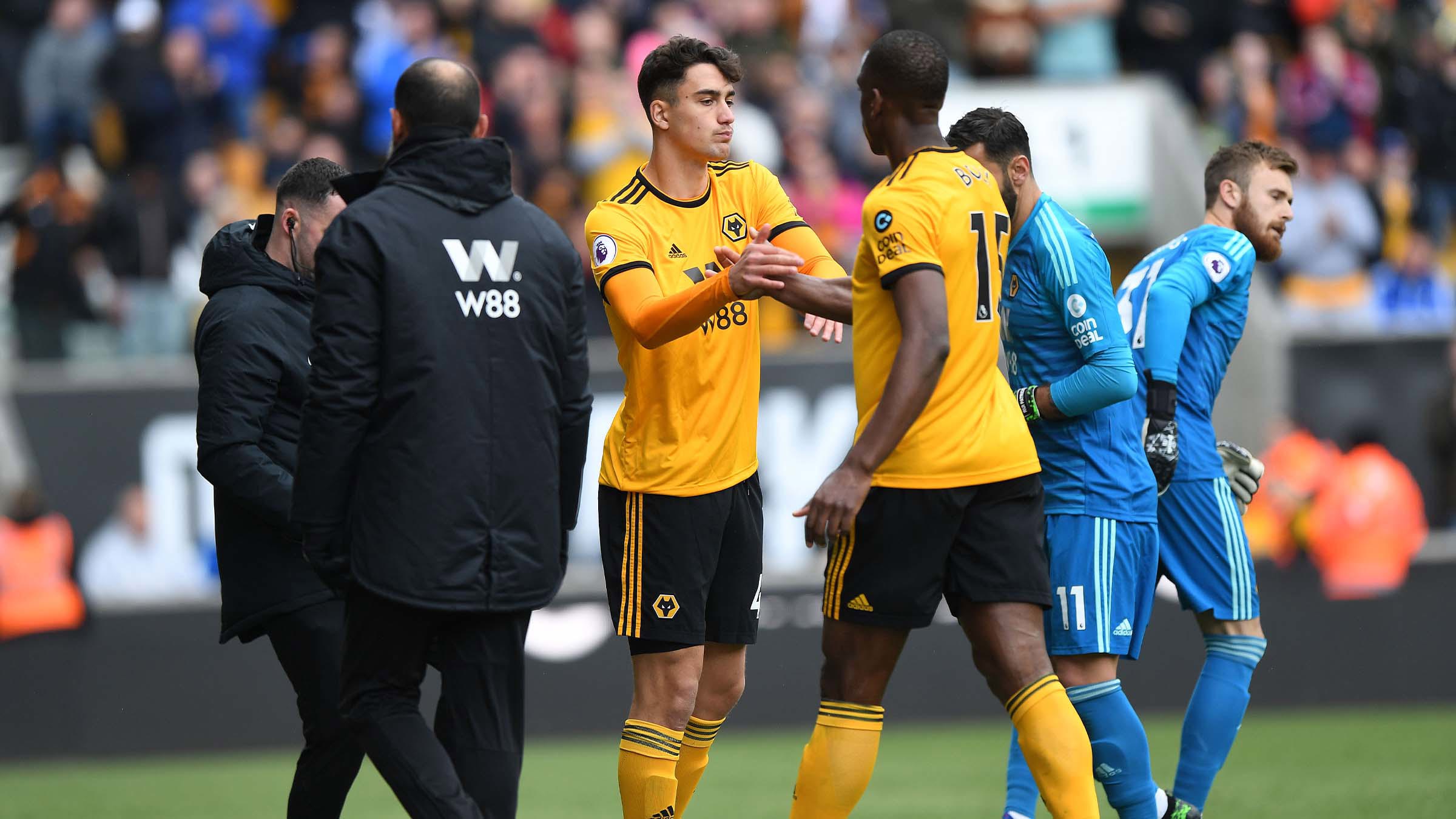
However, a part-time footballer was stepping into an elite level set-up. Wolves finished seventh that year, qualifying for the Europa League, and reached the semi-finals of the FA Cup, and Kilman admits there were doubts if he belonged.
“For sure, I had those thoughts. When I first came in and started training, I was becoming a full-time athlete. I had never been a full-time athlete before and there was stuff I had to work on, physically I had to adapt to the training load and training every day, because I’d never been in that environment.
“Nuno helped me a lot with that. He really believed in me and when he integrated me into the first-team he made sure the coaching staff would do extra sessions with me. I never thought that I could break into the first-team as quick as I did, I never really thought that I would go much further. I thought I would get a bit more experience and then maybe go out on loan somewhere or after a couple of years Wolves would let me go. Although I obviously believed in myself, I never expected anything.
“Rob and Nuno were very different, but it was good because I had both of them giving me lots of advice and lots of ways in which I could improve. Rob is obviously doing really well now, so it was two top coaches who were coaching me at once, and I was very fortunate, Nuno in the first-team and Rob in the 23s, giving me their guidance and helping me to improve as a player.”
Qualification for European football presented an opening – five of his 11 first-team appearances the following season came in the Europa League – and it was an opportunity which needed grasping. Any signs of imposter syndrome were ironed out by the leaders in the dressing room – Conor Coady, John Ruddy and Joao Moutinho to name three. Coady particularly was priceless to Kilman, talking him through games as a defender and a captain, but also a friend.
“’Coads’ was obviously great, and we still speak a lot now. We’re good mates. He was very important because every time I played for Wolves at the start, he was playing as well, so he helped a lot by guiding me through games. I learned from him, as well as the other defenders, Saiss, Boly, Bennett. I always looked to them, and they were good role models for me.
“Back then, I didn’t think I’d ever be captain because I was shy and wasn’t as vocal and outgoing as I am now. Coads did it so well, so I wasn’t thinking about replicating him, because I didn’t think I’d be in this position.
“I was always comfortable in the group, but I didn’t think I could settle until I got a run of consistent games. Even when I played in the Europa League, I was in and out of the team, but I didn’t feel an established Premier League player. I only felt that during the Covid season when I got a run of games, but even then I had to keep progressing and it’s the same now, and I’m hungry to improve.”
A special moment for @maxkilman 💛
— Wolves (@Wolves) November 2, 2021
🐺🎥 pic.twitter.com/1kEwrUximx
After a further 20 appearances the following season under Nuno, things changed. Nuno was gone, replaced as head coach by Bruno Lage, which brought an element of the unknown to a settled squad.
A number of factors worked to Kilman’s favour, however. Number one, he was clearly a talented defender which Lage took to. Secondly, the head coach initially kept a back three. Lastly, Willy Boly missed the start of the season through injury. Kilman and Coady were joined by Romain Saiss for a defensive unit which seldom changed, leading to a first season of constant football for Kilman.
“It was great. I thought Nuno was going to be the manager for a while and I hadn’t experienced a new manager coming in before. At my other clubs, the managers had always stayed, so it was a new transition, and it was a good opportunity to showcase myself. Bruno was a new manager, so I took it as a new challenge to show what I can do. Of course, you never wish injuries on anyone, but I did get an opportunity when injuries happened. I just wanted to do my best and keep myself in the team.”
After a top ten finish and Kilman playing consistently well, optimism was high going into last season. Lage was transforming the group, moving to a back four and youngster Nathan Collins was brought in to replace Saiss, Boly and Coady. Leaders were leaving and Kilman needed to step up.
A tough start to the campaign presented challenges the defender had never experienced before. As Lage went, Julen Lopetegui arrived with new ideas and new players in the January. Craig Dawson joined, creating uncertainty on which two central defenders would be chosen to play but Kilman got the trust of his third Wolves manager instantly, joining Dawson for a crucial 3-0 win over Liverpool which helped transform the season.
“It started off really well last pre-season. I think we had a good record at the start, but there was a lot going on at the club, losing form and losing our manager, so it was difficult. I learnt a lot from that, experiencing losing games and going through a bad spell, then changing managers. That was an important period for me and I’m sure the other boys feel the same.
“It was a very difficult period for all of us and I didn’t want to change how I was. I wanted to keep my standards, stay composed and calm, because that’s what I can bring. I didn’t want to drastically change who I am, so I tried to show my leadership by keeping everyone calm during a difficult period, which we overcame thankfully.”
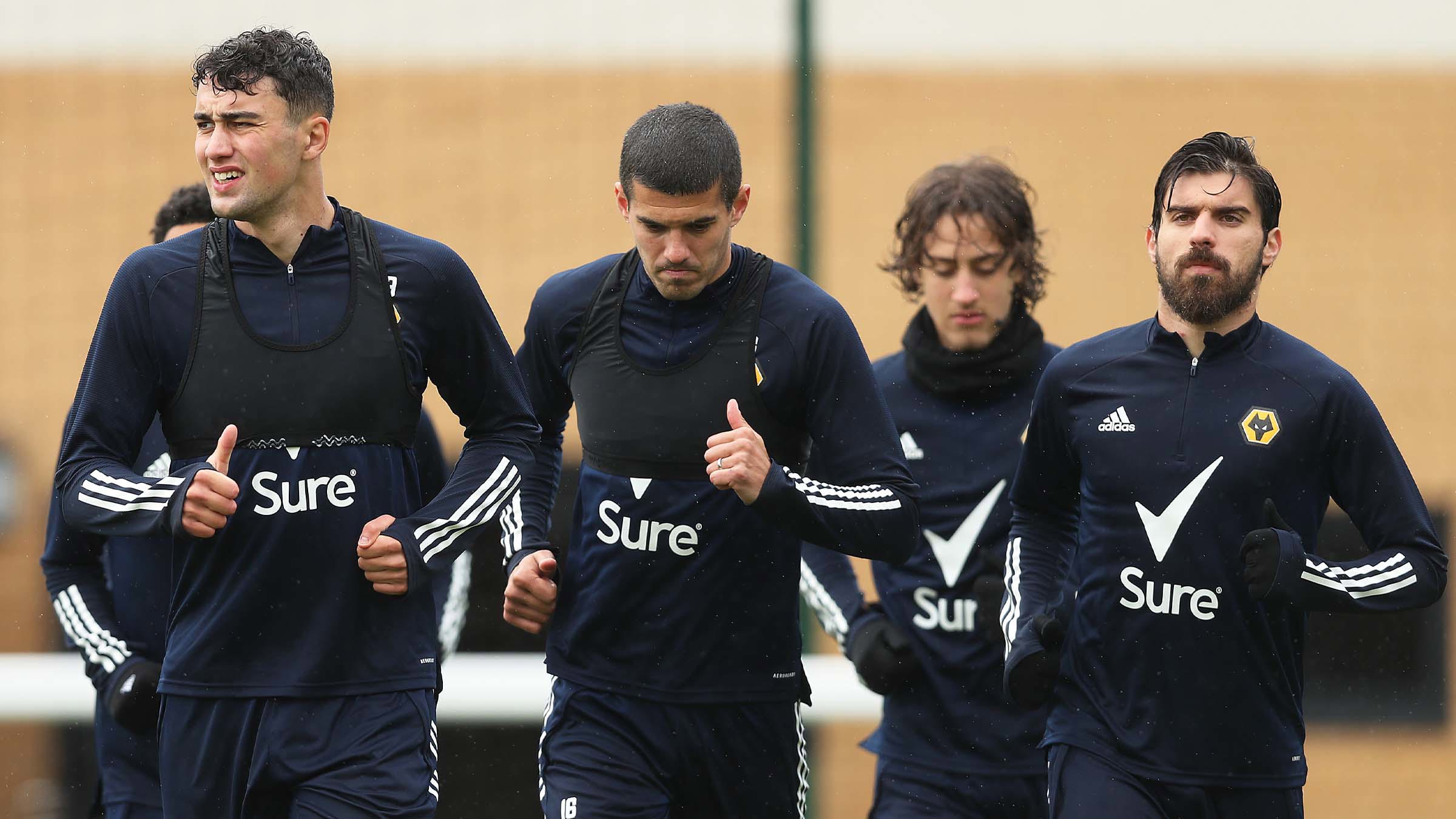
As the campaign wore on, and Wolves edged towards Premier League survival, Kilman’s vice-captain responsibilities intensified. Having worn the armband on occasions earlier in the season, the significant moment arrived in the spring.
Neves, who’d replaced Coady as captain the previous summer, was suspended and Wolves had two crucial Molineux matches against Chelsea and Brentford, which were set to define their season. Kilman led the team out against the club he supported as a child in Chelsea and led Wolves to victory that day, as well as against the Bees – two trials successfully passed as skipper of the team.
“I wore the armband against Preston in the cup, then for the last ten minutes against Newcastle, but the biggest one was when we beat Chelsea and I started as captain on my 100th game. That was my best moment for Wolves and is something I will always remember. It was a big game, we needed the win, so it was a good day.”
Survival was successfully achieved from that point. Neves bowed out at the end of the campaign and for the second successive summer, the captaincy was available. However, like when Neves replaced Coady, there was no debate. Kilman was Wolves’ man – the new captain and trusted member of the senior leadership group.
The captaincy is the latest success story for a highly talented 26-year-old, who is determined to lead by example, while remaining humble about the journey he’s been on.
“Sometimes my mum or girlfriend talk about how far I’ve come, and I agree, but there’s a lot more to achieve and I’m very honoured to be our captain.”
